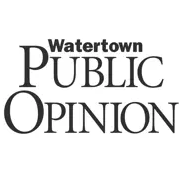**Singapore Aims to Strengthen Military Ties with Australia** Singapore is looking to enhance its military relationship with Australia, including increasing the presence of Australian troops on the island. Prime Minister Lawrence Wong announced these plans as part of a broader effort to upgrade trade and defense ties between the two nations. This announcement follows a significant defense treaty signed between Australia and Papua New Guinea, which allows for up to 10,000 Papua New Guineans to serve alongside the Australian Defence Force.
Wong arrived in Australia for the annual leaders' meeting, coinciding with the 60th anniversary of Singapore's founding and Australia's recognition of the nation. In an exclusive interview prior to his visit, Wong discussed various topics, including the AUKUS security pact, concerns over potential conflict in Taiwan, and the impact of U.S. tariffs on Singapore's economy. He emphasized the importance of maintaining stability in a changing global landscape, stating, "It is in our shared interests to try and avoid that, prevent that from happening."
Wong, who became Prime Minister in December and won a decisive election in May, expressed that the partnership between Australia and Singapore is increasingly vital. He noted, "Our two countries have very similar strategic outlooks and perspectives," highlighting shared interests in security, free trade, and a rules-based international order.
The two nations have a long-standing relationship, formalized through a free trade agreement in 2003 and a comprehensive strategic partnership established in 2015. This partnership encompasses various areas, including trade, defense, science, and education. Currently, discussions are underway to refresh this partnership.
Singapore's strategic location has led to a higher defense spending relative to other countries, including Australia. The nation mandates two years of full-time national service for male citizens and is part of the Five Power Defence Arrangements, which includes Australia, Malaysia, New Zealand, and the United Kingdom. Australia has historically provided military training opportunities for the Singapore Armed Forces.
Wong indicated a desire to deepen defense cooperation, stating, "We already have a very strong base. I think we can go further." He mentioned discussions about allowing military access to defense facilities in both countries and enhancing cooperation in defense technology and logistics.
Regarding the AUKUS partnership, Wong expressed Singapore's support for the U.S. military presence in Asia, viewing it as crucial for regional stability. He stated, "We support America's continued presence in Asia, and we think that AUKUS can be a positive force in that direction."
Wong also addressed the implications of changing U.S. trade policies, particularly the rise in tariffs. He noted that the current trend of increasing tariffs could lead to economic fragmentation, stating, "We must be prepared that we are going to enter a period where there will be greater economic fragmentation."
He expressed concern over the potential for a world dominated by competing blocs, which he described as "unstable and dangerous for all." Wong emphasized the need for countries like Singapore and Australia to work together to preserve multilateral frameworks and foster a more inclusive regional environment.
On the topic of U.S. tariffs, Wong conveyed Singapore's worries about their impact on the economy, particularly in sectors like pharmaceuticals and semiconductors. He stated, "We are very concerned. I mean, first of all, on the original tariff, we've said it should be zero, not 10."
While Singapore has not yet felt significant economic impacts from these tariffs, Wong acknowledged that uncertainty is affecting business confidence and investment decisions. He concluded that the external environment would likely impact Singapore's economy in the coming months as businesses adjust to the new trade landscape.

 Australia News
Australia News

 Watertown Public Opinion Sports
Watertown Public Opinion Sports The Babylon Bee
The Babylon Bee